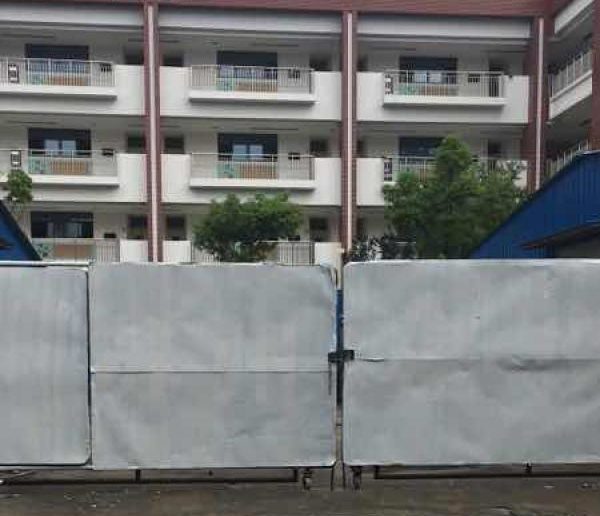Qinxi Experimental Primary School, a locally prestigious school in Suzhou, Jiangsu province, has gained public attention for segregating 800 children from migrant families and those from wealthier families whose parents own apartments within the school district.
Those 800 children previously studied at a private school called Lixin Primary School which caters for children of migrant workers. The local authority decided to assign the students to Qinxi temporarily due to Lixin’s problems renewing its land lease for the campus.
This controversial move, according to the report from The Paper, came after a flood of complaints from parents who bought expensive apartments in the school district in order to get their children access to Qinxi, a much sought-after school, which requires both a property ownership certificate and local household registration (hùkǒu) for enrollment.

The barrier that segregate the campus into two parts.
In most cities in China, children are assigned to public schools based on the proximity of their family’s home, which inevitably encourages eager parents to snatch up properties in districts with good schools as admission tickets. In a society famous for valuing education, it’s common to see Chinese parents spend whatever it takes to get their kids to the best possible schools; and competition for these properties continuously drives up prices in desirable school districts to jaw-dropping sums.
A report from People’s Daily reports that some districts in Beijing have unveiled plans to assign children to different schools within the district rather than the nearest school, in a bid to restrain this runaway housing market. But it’s unfortunately still the case in most other cities around China, and it seems there is a long way to go before there is any real change.
In response to critical voices on social media, the district educational authority in Suzhou has made a public clarification that “the barrier is nothing discriminatory, but to ensure better management for both schools, and we’re trying our best to ensure all children enjoy equal educational opportunities”. But the high barriers which keep the campus segregated are still a painful reminder of the financial barriers that frustrate many Chinese.




